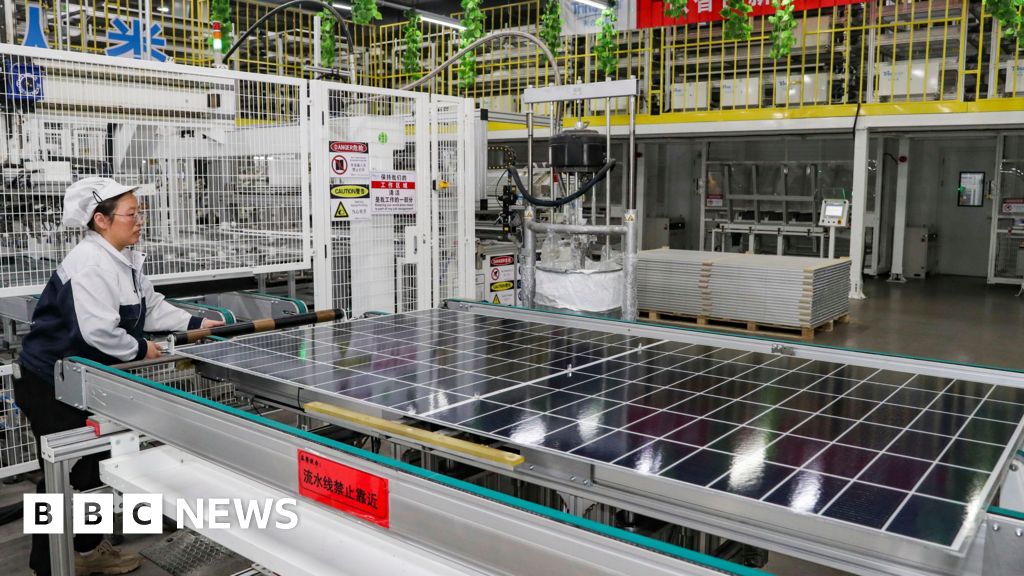Unlock the Editor’s Digest for free
Roula Khalaf, Editor of the FT, selects her favourite stories in this weekly newsletter.
Chanel is bracing for a “tougher” 2024 as the luxury industry grapples with slowing growth amid a global economic slowdown.
President of fashion Bruno Pavlovsky said that the economic situation was difficult “everywhere, in every single country”, echoing warnings made by executives at LVMH and Burberry in recent weeks.
“Luxury is not protected from the economy,” he told the Financial Times ahead of Chanel’s Métiers d’Art show in Manchester, where the company welcomed international clients and celebrities including Hugh Grant and Tilda Swinton. “I don’t have a crystal ball, but the situation will be tougher than what we saw in 2023.”
Although the company’s top spenders are continuing to splash out, Pavlovsky warned that high inflation in the US and Europe and record youth unemployment in China have resulted in a decline in store visits and purchases from first-time and occasional buyers.
Analysts at Bain are forecasting a broader slowdown in the personal luxury goods sector next year, with sales growth in the low- to mid-single digits after averaging three consecutive years of 20 per cent rises. The family owned, Paris-based group recorded revenues of $17.2bn in 2022, up 17 per cent from the previous year.
Pavlovsky cautioned that this latest downturn is “normal” and that luxury “can’t be in permanent two-digit growth”. He is confident the company’s financial results will remain “quite high” next year thanks to the “strong relationships” the company has fostered with clients.
The ultra-wealthy are an increasingly important segment within luxury brands, with the top 2 per cent of spenders now accounting for 40 per cent of sales on average, up from 35 per cent in 2009, according to Bain. To draw them into stores, Chanel opened a number of “salons privés” within existing boutiques in Asia, Europe and the US last year.
Luxury’s second-largest brand by revenue is also continuing to invest in multi-day destination events such as the Métiers d’Art show it hosted in Manchester, where clients were wined, dined and outfitted in custom kit for a Manchester United vs Chelsea football game (Man United won 2-1). The festivities culminated in a catwalk show held on a rain-slicked cobblestone street and an after-party headlined by Primal Scream.
Chanel global chief executive Leena Nair applauded as models stepped out in ‘60s-ish skirt suits in colourful tweeds and black-and-white houndstooth, quilted black coats and Mary Jane flats. Acid-washed denim cut-offs, grungy argyle knits and black sequin mini skirts paid tribute to Manchester’s punkish spirit and ‘80s club scene.
Pavlovsky said the brand’s annual Métiers d’Art and Cruise shows, held in a different destination every December and May, are now driving more business for the brand than the autumn/winter and spring/summer ready-to-wear and haute couture collections it shows biannually in Paris. “They are our two key moments in the fashion cycle,” he said.
While other brands are concentrating destination shows in key markets such as the US and China, Chanel has in recent months ferried customers to more adventurous locales. Last year’s Métiers d’Art show was hosted in Dakar, Senegal, where the company shined a spotlight on local weavers and embroiderers. “Our customers love to learn,” said Pavlovsky. “The world of today is not just LA or Hong Kong.”
Reflecting the economic mood, Chanel has seen rising demand for simpler, more sober clothes — a trend described as “quiet luxury”. “The looks are simpler but not less sophisticated,” Pavlovsky said. “The techniques, the materials — they are not that simple.”
Chanel has come under fire from some customers for raising prices in recent years — the price of a Chanel quilted classic handbag is now £8,530 in the UK, up from £4,720 in 2019.
Pavlovsky characterised the hikes as a “normal evolution” correlated to inflation and positioning relative to other players in the sector and suggested there will be further increases next year, but in line with the lower rate of inflation.
“The idea is not to be the most expensive, but just to be sure the prices are at the level of the business,” Pavlovsky said. “We do not want to disconnect anyone from the brand.”
Pavlovsky said the company will continue to focus on what he called the “fundamentals” — products, customer relationships, as well as deepen the traceability and transparency of its supply chain.
“It’s not the first time we see in front of us some clouds,” he said. “It’s not enough just to be good when everything is nice. We have to be good when the world is tough.”
Credit: Source link











